
Established 2005 Registered Charity No. 1110656
Scottish Charity Register No. SC043760
DONATE
the Pavement
the Pavement is the free magazine for the UK's homeless people
We are committed to publishing objective reportage, tailored to a homeless readership, and to publicising the complete range of services available to homeless people, to reduce hardship amongst our readers and to enable them to guide their future.
We believe that drives to produce homogenous services for homeless people are misguided, and that a range of service types and sizes are the only way to cater successfully for our diverse readership.
We believe that sleeping rough is physically and mentally harmful; however, we do not preach to those who chosen to, nor do we believe that all options to get off the streets are necessarily beneficial to long-term health and happiness.
DOWNLOADS
Your rights
The Rights Guide for Rough Sleepers outlines your rights around arrest, stop and search, answering police questions, move-ons, no-drinking zones, sleeping rough, taking a pee in public and highway obstruction. It was put together by the Pavement, Housing Justice, Liberty and Zacchaeus 2000.
If your benefits have been sanctioned (cut off or reduced) and you feel this is unfair, you can appeal. Print this letter and hand it in at the office where you sign on. If you feel you need more advice about sanctions, contact Zacchaeus 2000 or your nearest Citizen’s Advice Bureau. And let us know contact@thepavement.org.uk at the Pavement!
VOLUNTEER
If you are a journalist with some free time to research and write stories for the magazine, please contact us web@thepavement.org.uk. For other volunteering opportunities, please approach organisations listed on our Services pages or your local volunteer centre
IN THE LATEST ISSUE
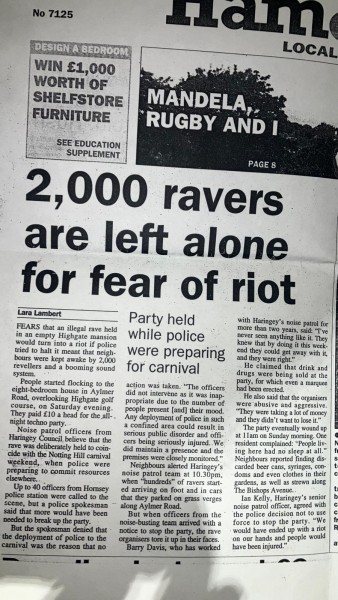
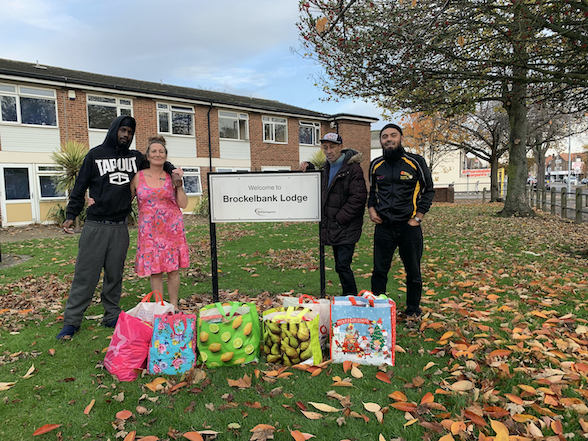
ANNOUNCEMENTS
Want to talk?
• Mind, a mental health charitywww.mind.org.uk or 0300 123 3393
NEWS about coronavirus COVID19
Useful protocol guidance from
Housing Justice:
homeless.org.uk/connect
covid-19
Will you use your admin ninja skills to help a unique small charity working to support homeless people?
Do you want to use your fundraising skills to support a unique small charity working to support homeless people?
Will you donate your a journalism or photography skills to help the homeless people we work to support?
LATEST STORIES
No vacancy
A Holiday Inn Express in Manchester refused two men from staying in their pre-booked hotel rooms after identifying them as homeless. Two Brews charity volunteer Amanda Thompson, who booked the rooms, told the BBC the men were refused entry because the hotel doesn’t allow homeless people to stay, saying “it’s company policy”. Hotel staff were wrong, of course, and a grovelling apology has since been made by a spokesperson on behalf of Holiday Inn. According to the spokesperson, “this incident is not in keeping with our policy of welcoming all and should have been handled differently.” The men were refused their rooms on an early January night this year, with the temperature outside a freezing -6c. Happily, the men were able to secure a room that night at a Travelodge in Moss Side.
New landlords
Homelessness charity Crisis is planning to purchase properties in the UK, saying it can no longer rely on access to ever-dwindling existing social housing stock. It will be the first time in the charity’s 60-year history it will act as a landlord. Chief executive Matt Downie told the Guardian in late 2025 the charity will fundraise for the project, noting “We [Crisis] wouldn’t be doing this unless the wheels had come off the homelessness and housing system.” He went on to explain the project will pilot in London and Newcastle, aiming “to get to at least 1,000 homes in the first phase, with Housing First tenancy support teams in the two cities ready to go to support people. But the ambition is to move to something even bigger so that we can demonstrate that the solution to homelessness is housing.”
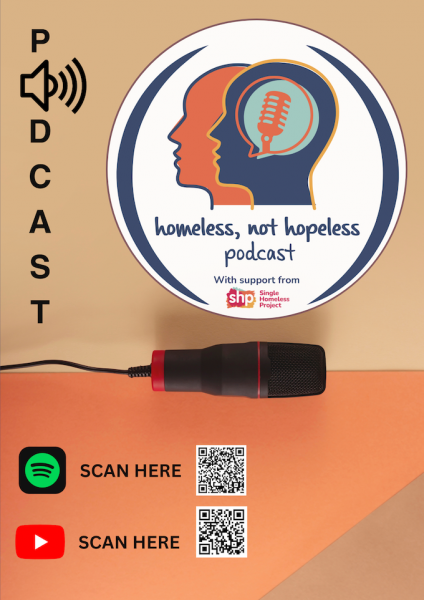
Homeless, Not Hopeless is a podcast that explores real stories from people who have experienced homelessness and are working to rebuild their lives. Through honest conversations, the podcast looks at what helps people move forward, whether they grew up feeling overwhelmed, took an unsteady path into adulthood, or had to restart after hitting a low point. The podcast focuses on practical steps, support systems and the moments that shift someone’s direction. The aim is for listeners to hear what has worked for others, notice where their own experiences resonate and see that although life doesn’t start equally for everyone, progress and change are still possible. It’s not about perfect answers, it’s about exploring real journeys toward stability, confidence and independence. Homeless, Not Hopeless is co-produced by staff and residents of the Single Homeless Project, combining lived experience and professional insight to offer an honest look at homelessness, recovery and resilience. The podcast is available on Spotify and YouTube. If you feel that your story or recovery journey could contribute to the podcast, Homeless, Not Hopeless will be happy to hear from you, please get in touch: AZajac@shp.org.uk
Passport plan
Camden Council in London will offer people sleeping rough ‘personal passports’, used to record information about themselves to share with services. The BBC says the passports were successfully trialled three years ago and will aim to prevent people from having to repeatedly disclose sensitive information, “an exhausting and confusing experience,” a spokesperson for the council said.
Old news
Older generations in the UK are beginning to feel the impact of the escalating housing crisis. A growing number of over-60s are approaching local authorities for homelessness support, with charities pointing to high private rents and lack of social housing affecting pensioners’ ability to find homes. Quoted in the Guardian, Dan Holland, from the Salvation Army’s homelessness services team, explained “not as many people now have a mortgage that they’ve paid off and a roof over their head that they can call their own. Lots more people are renting, relying on housing benefit which has been frozen, so it’s not rocket science, eventually they will end up experiencing homelessness.” Charities including St Mungo’s and Crisis have reported cases of elderly people sleeping for months in their car, people with complex health problems facing homelessness and a rapid increase in over-55s staying in temporary accommodation.
Moved on
A long-standing homeless encampment at Adelphi Terrace in Westminster has mysteriously disappeared, raising concerns for the people who were staying there. In December, the Big Issue published a story about the encampment, featuring powerful portrait photographs of 11 people living there. In total, the magazine counted 30 tents at the encampment late last year. The photographer for the story, Marc Davenant, set up an urgent meeting with Westminster Council on 23 December to discuss the welfare and safety of the people living at the encampment, as he had heard the site would be cleared on 1 January. Before the meeting, however, Davenant was stunned to learn the encampment had already been cleared. He managed to track down a few of the residents at The Connection and one sleeping rough in the area. Two of the more vulnerable members of the encampment have not been seen or heard from since the site was cleared.

The Night Owls and Abstractions exhibition. © Piers Allardyce
Awards season: The 2025 annual Koestler Awards show took place in London’s Royal Festival Hall on the Southbank between October and mid-December. The exhibtion was titled Night Owls and Abstractions, featuring around 200 artworks created by people in criminal justice settings. The works featured in the exhibition were selected from a pool of more than 7,500 entries and include creative writing, painting, sculpture, music and other artforms. Planning for this year’s awards show is already underway, with the theme ‘Roots’. The deadline for entries is Friday 17 April, 2026 and is open to anybody in custody in a UK prison, young offender institution, secure training centre, secure children’s home, immigration removal centre, or high or medium security psychiatric hospital or unit; any current client of the National Probation Service, a youth justice service, or the Scottish Criminal Justice Social Work Service; any UK citizen currently in a prison overseas. Enter the 2026 Koestler Awards national competition here: koestlerarts.org.uk/get-involved/koestler-awards/enter-the-koestler-awards
New homes
At the start of the new year 16 families experiencing homelessness in Scotland have been given homes in Glasgow and Edinburgh, as part of a Home Group Scotland collaboration with local authorities in the cities. Six families have moved into homes in South Queensferry, while 10 have secured a home in Tillycairn, Glasgow. According to Scottish Housing News (SHN), a further eight families will move into Farrier Fields, Edinburgh in March 2026. Bryony Willett, director of the housing associaton Home Group Scotland, told SHN: “Being able to provide affordable housing like this is why we work in social housing. Through these, and previous partnerships, we have been able to provide new homes to local families desperately in need of a place to call their own.”
Dying shame
More than 100 people died while staying in temporary accommodation in Scotland during 2024-25, the Daily Record reported in late December 2025. Overall, 118 people died while living in temporary accommodation. Meanwhile, figures show 17,240 households were staying in council-funded properties in March 2025, a record high. Anas Sarwar, leader of Scottish Labour, said “the SNP ought to be ashamed of this record.” He added that “more than 100 people [have been] robbed of the chance to live out their days in a home of their own.” Resonding to Sarwar’s comments, SNP Housing Secretary Màiri McAllan defended the party’s record: “This government has delivered more than 141,000 affordable homes. In the last four years of the Labour-led government in Scotland, only six new council houses were built compared to the last four years, under this Government, when 8,572 new council houses were built.”
Expert advice
An expert from Heriot-Watt University has warned a return to dormitory-style night shelters in Scotland poses a risk to people experiencing homelessness. Research by Professor Beth Watts-Cobbe suggested so-called “shared air” shelters can lead to worse health outcomes and users being exposed to violence and drug harm. The research comes as pressure to open more night shelters in Scotland mounts. Dormitory-style homeless shelters have been gradually phased out following the onset of the Covid-19 pandemic, to the point that Homeless Project Scotland runs the country’s only continually active night shelter. Its chief executive, Colin McInnes, told the Press Association he strongly disagreed that shelters should be avoided altogether. He argued: “The suggestion that avoiding shelters is inherently safer than providing emergency cover ignores the real-world consequences of inaction… A key issue with much of this debate is that it is being led almost entirely from an academic and policy perspective, rather than from lived experience or frontline reality.”
News in Brief : Issue 159
01 December 2025CHAIN reaction
New figures from the Combined Homelessness and Information Network (CHAIN) quarterly report, released in October, have shown that between July and September 2025 an average of 23 people every day were forced to sleep rough for the first time in London. The data makes dismal reading, with a reported 759 people living on the streets of the capital continually through July to September 2025, an 11% rise on last year’s figures over the same time period. Overall 4,711 people were recorded as sleeping rough in London in July to September.
The housing crisis
For the year 2025-26, England will sell eight times more council homes than it built the previous year. Analysis in the i paper has found that an estimated 18,500 council homes will be sold off in 2025-26, in contrast to the 2,260 built in 2024-25. Research by the thinktank Common Wealth highlighted that since 1980, 2.4m council homes have been sold off under right to buy, at a discount that Common Wealth calculated was valued at £194bn, accounting for house price appreciation, with 41% of these homes now belonging to private landlords. In the late 1970s, council homes in England accommodated about 30% of households. The figure is about 6% today, an 80% decline. In 1979, Margaret Thatcher ran for prime minister on a manifesto which included introducing a new Housing Act. In 1980, Thatcher’s Conservative government passed the Housing Act 1980, which gave people the right to buy their council homes. Common Wealth called for expanding “right of first refusal” powers in its November report, powers that enable local authorities to be the preferred buyer when ex-social homes and private rental homes enter the market.
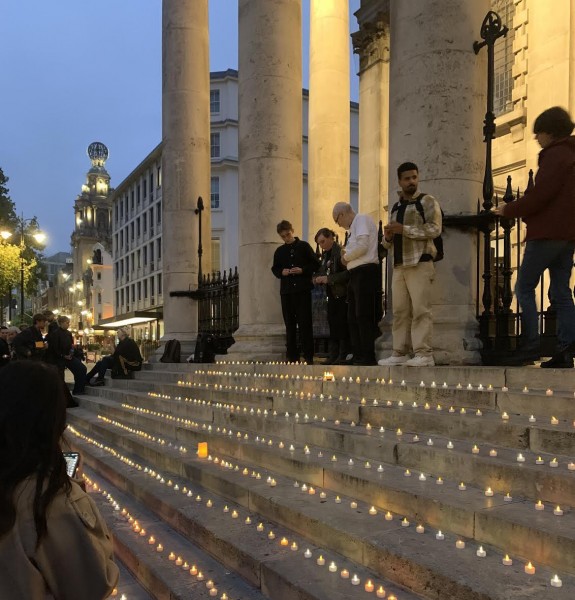
© the Pavement
Vigil: In early October a record crowd gathered on the steps of St Martin-in-the-Fields, opposite Trafalgar Square in London. They were there to honour and remember the people who died while experiencing homelessness in the UK. The annual vigil, organised by the Museum of Homelessness, coincides with the release of its Dying Homeless project statistics for the year. The project has a simple goal: to number and, where possible, name the people who have died while experiencing homelessness in the past year. According to the latest report, 1,611 people died while homeless in the UK in 2024 – a 9% increase on last year’s findings. Each death is verified by a freedom of information request, coroners’ report, charity or family member. Find out more about the work the Museum of Homelessness does on its website: museumofhomelessness.org
Bank on it
A project run by Shelter, the government and HSBC to help people experiencing homelessness open bank accounts, will be expanded to include Lloyds, NatWest, Barclays, Nationwide and Santander. Commonly, people require a bank account to apply for work and rental accommodation in the UK, which can often be an issue for people experiencing homelessness. The scheme aims to secure people a bank account and provide additional support, such as accompanying individuals to face-to-face meetings at local bank branches. Since the pilot scheme launched in 2019, 7,000 accounts for people experiencing homelessness have been opened with HSBC, reported the Guardian in November.
Buenos Aires bulletin
The number of people experiencing homelessness in Buenos Aires, Argentina, is increasing at an alarming rate. According to municipal data, which is widely regarded as an underestimate, at least 4,522 people were living on the capital’s streets in May 2025, a 38% increase on the number in November 2023. Charities and homelessness campaigners point to the election of Javier Milei as president in December 2023, whose plan to tackle dizzyingly high inflation has been to implement a devastating austerity programme, as a cause. Accoring to the Guardian, about 200,000 formal jobs have been lost, household debt is on the rise and there has been no improvement in living standards since Miliei took power.
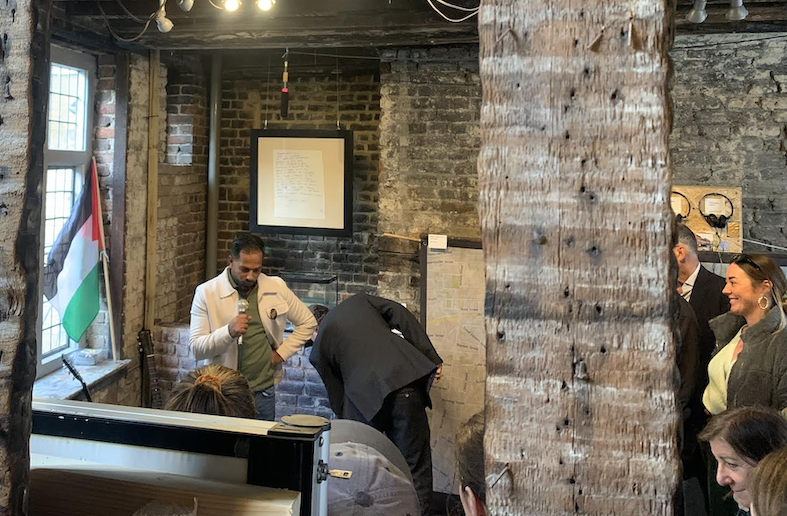
A performance at Recovery Re:Told, an exhibtion organised by the People’s Recovery Project. © the Pavement
Shaping the narrative: The People’s Recovery Project held an exhibition in early October, showcasing art made by people connected to its service. Recovery Re:Told was held at the the House of Annetta in east London from 7-12 October. Drawing on its work supporting people in their recovery from addiction, the People’s Recovery Project aimed to highlight the creative output of its community members, with an array of performances and artworks, including spoken word, music and installations. Learn more about the People’s Recovery Project on its website: thepeoplesrecoveryproject.org
Calling security
Transport for London (TfL) spent £113,365 on hiring a security firm – believed to be MEC Security – to prevent people sleeping rough on Park Lane, between July and September 2025. London Centric revealed in October that security had been deployed to patrol the area and discourage people from sleeping rough there. In May 2025, Westminster City Council won a court order to remove a large encampment on Park Lane near Hyde Park Corner. The strip where people made the encampment is in the Westminster district but is actually managed by TfL. TfL would not say for how long security will patrol the area.
Funding boost
An additional £1.6m in funding has been provided by the Scottish Government for the next year to tackle homelessness. According to Scottish Housing News, the majority of the funding (£1m) will go towards Discretionary Housing Payments, which help people move from temporary accommodation into settled homes. About £100,000 will be added to an emergency fund for outreach workers to use to help people sleeping rough. The extra funding was announced at Scotland’s Annual Homelessness Conference in Perth, in late October.

© Too Light Too Dark
Podcast news: The latest episode of Too Light Too Dark, the podcast created and hosted by Leon Eckford – whose writing is regularly featured in the Pavement – features members of the Pavement magazine talking about their work and the history of the magazine. The podcast sheds light on people and groups working with homeless people and people in recovery, with past episodes including the People’s Recovery Project and The Homeless Guide. You can listen to Too Light Too Dark on Spotify and Apple Music.
Bad reviews
A Glasgow Evening Times story published in November detailed Glasgow City Council’s legal troubles around homelessness. Since April 2025, the council has had 2,365 threats of judicial review, challenging the council’s use of unsuitable temporary accommodation for people experiencing homelessness. In these cases, people have been placed in unsuitable accommodation for more than seven days, or the council has failed to find suitable alternative accommodation. Of these threats, 31 made it to court, although these were resolved before any orders had to be made against the council.
Obituary
On 3 September, Cyrenians, a Scotland-based charitable organisation providing services focusing on homelessness prevention, shared the deeply sad news that Viki Fox had passed away. Viki had been at Cyrenians for more than eight years, first as a volunteer and later as a full-time staff member. Some of her achievements at Cyrenians include her recent management of the Women’s Recovery House services, as well as committed advocacy for recovery and trauma-informed practice in homeless services. It was while working at Cyrenians that Viki learned about the Pavement magazine. Over a number of years, Viki produced powerful articles exploring her experience of homelessness and substance use. A tireless advocate for homeless people, Viki also worked regularly with Homeless Network Scotland, St Martin-in-the-Fields and was a member of the Board of Trustees at Crisis. Viki will forever be remembered as a wonderfully kind, deeply empaphetic and compassionate person, who brought all of these incredible qualities into her work with the homeless community. We were lucky to know her and share her words with you.
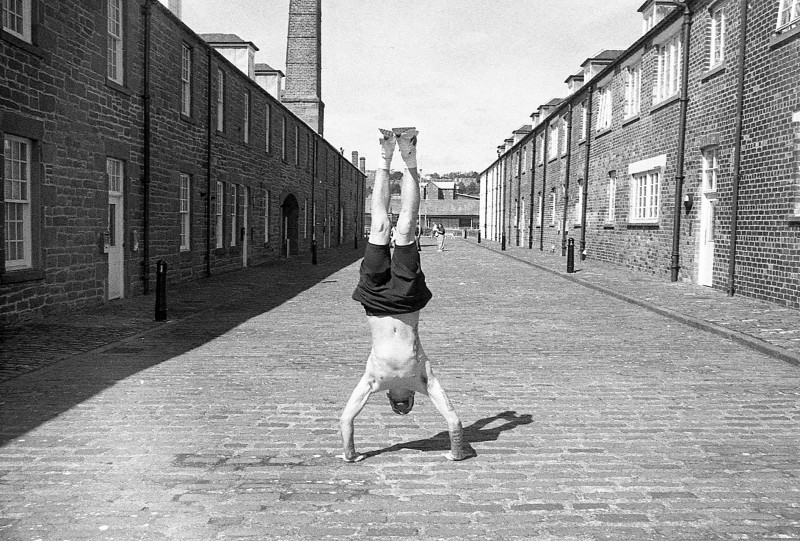
A picture on display at Look Out!. © The Salvation Army
Photo gallery: A photography group of residents at The Salvation Army’s Strathmore Lodge Lifehouse in Dundee held an exhibition in October, showcasing the incredible work participants in the group produced. The group was given cameras in 2024 and tasked with capturing the city from their own perspective. In October 2025 the results, featuring mostly film and some digital photography, were put on display at Dundee Central Library. The exhibition, Look Out!, was open for two weeks from 9 October, with free entry for visitors. Ricky, a resident of Strathmore Lodge and member of the photography group, stressed the enjoyment of the project in a press release: “My favourite thing was going out on photo walks. Enjoying the sunshine and ending up with good memories that we could print.”
News in Brief : Issue 158
01 October 2025On the web
A new website was launched earlier this year by a community interest company (CIC) led by people with lived experience of homelessness, addiction, mental ill-health, poverty and the criminal justice system. Livedinsights.org platforms community-based research driven by individuals with direct experience, aiming to provide genuine insights into social issues. These insights intend to shape policy and influence strategy of organisations and service providers. Lived Insights is a York-based CIC providing space for homeless and marginalised voices.
- Learn more about Lived Insights on its website: livedinsights.org

A prize-winning picture from the MyLondon 2026 calendar. © Kenny Murphy
Picture perfect: The MyLondon 2026 calendar is set to be launched on World Homeless Day, 10 October, after its fundraising target was smashed by almost 40%. Homeless charity Cafe Art organises the MyLondon project, which sees disposable cameras handed out to people who are homeless or recently homeless. Participants are given a week to use up all of the film, before handing the cameras back. Photos are then shortlisted to feature in a calendar produced by the charity, profits of which go to the photographers and towards funding future calendars. Cafe Art is aiming to pay out £25,000 to photographers by the end of the MyLondon 2026 calendar project. An exhibition of selected photos promoting the calendar was open from 8 August to 30 September in south London.
Hypocrisy corner
In early August, Rushanara Ali, England’s homelessness minister, resigned from her role. The resignation followed reports she had evicted tenants at one of her properties to re-let the property for £700 more a month weeks later. The tenants had been told the property would be put up for sale after their eviction. The news first appeared in the i paper, noting in its report that Ali has previously spoken out against private renters being exploited, promising the Labour government would “empower people to challenge unreasonable rent increases”. Next year the renters’ rights bill is expected to become law, banning landlords from ending tenancies in order to sell, only to relist said property at a higher rent.
- See page 12 for a full report on the disgraced homelessness minister

Streets Fest in the sunshine. © the Pavement
Day in the park: The annual Streets Fest event took place in Finsbury Park, London on 4 September. Bringing together a host of charities and organisations, the annual event connects people experiencing homelessness with vital services. Hot food and entertainment was also provided for visitors, with a stage set up for live music and Streets Kitchen serving up meals. The festival is organised by Streets Kitchen, Islington Council and Haringey Council and runs every year, usually on a September date.
Blanket tech
Congratulations to Rebecca Young, the 13-year-old Scottish schoolgirl who has been named a “girl of the year” by Time magazine. Young received the accolade for inventing a solar-powered thermal blanket for rough sleepers to use during cold temperatures. So far, 30 blankets have been manufactured and distributed by engineering firm Thales, with plans to make 120 more and provide them to homeless charities in Glasgow. Speaking on her invention, Young said: “The idea came from seeing how hard it is for people living on the streets of Glasgow, especially during winter, and wanting to create something that could make a real difference.”

A look at the ANEW way to Peel an Orange exhibition in Manchester. © Jules Lister
Art class: An exhibition in Greater Manchester features work by artists in substance abuse recovery, some of whom have experience of homelessness. A partnership project between contemporary arts organisation Portraits of Recovery, Manchester's Castlefield Gallery and Hyde recovery community ANEW, was established earlier in the year. Over five months, designer Joe Hartley made twice weekly visits to Hyde recovery community ANEW as artist in residence. Around 60 people attended the workshops, with numerous contributing works to ANEW way to Peel an Orange, an exhibition showcasing the project’s achievements. Hartley’s residence is believed to be the first of its kind held at a treatment and recovery service. ANEW way to Peel an Orange is being held at Castlefield Gallery, 2 Hewitt St, Greater, Manchester M15 4GB until 19 October 2025. Entry is free.
Punk festival
A three-day festival of punk was held in Glasgow in September, with all profits from the event going to local homeless charity Homeless Project Scotland. The festival was organised by Beyond the Gap, a husband and wife-run DIY promotion team. Acts that performed at the festival include Gimp Fist and Meryl Streek. According to The Herald, a punk rock quiz was also held at the event, which featured DJs as well. Organisers Beyond the Gap said the festival was an opportunity to celebrate “punk’s power to challenge, uplift and unite.”

Team Mexico at the 2024 Homeless World Cup. © Anita Milas
Kicking on: The 20th edition of the Homeless World Cup (HWC) was held in Oslo, Norway from 23-30 August. The week-long event features a men’s and a women’s tournament, bringing together over 500 players, representing 63 teams from 48 nations, with this year’s trophies won by Uganda (women) and Egypt (men). Uganda defeated the holders Mexico 6-0 in the women’s final, preventing the Mexican women from winning their seventh HWC title in a row, while Egypt beat Portugal 4-3 in the men’s. The tournament, which took place at Rådhusplassen (City Hall Square) and was open to the public and free to attend, was organised locally by The Salvation Army Norway. Matches took place in front of crowds and were also available to stream globally. Impact research on previous editions has shown that 94% of players report a positive effect on their lives from playing at the tournament. You can watch video content from the HWC here: www.youtube.com/@HomelessWorldCup
Housing crisis
Shelter Scotland has warned that Edinburgh City Council faces an “impossible task” to ease the city’s homelessness crisis without significant government support. In April the council suspended council housing allocations for all except those presenting to the council as homeless, with very few exceptions. Despite this move, 217 homeless households could not be provided housing by the council. Commenting on the crisis enveloping Edinburgh, Shelter Scotland director Alison Watson told the Edinburgh Reporter: “The situation has not emerged overnight; it is the result of decades of underinvestment in social housing and a failure to provide councils with the tools they need to fulfil their legal duties.”
